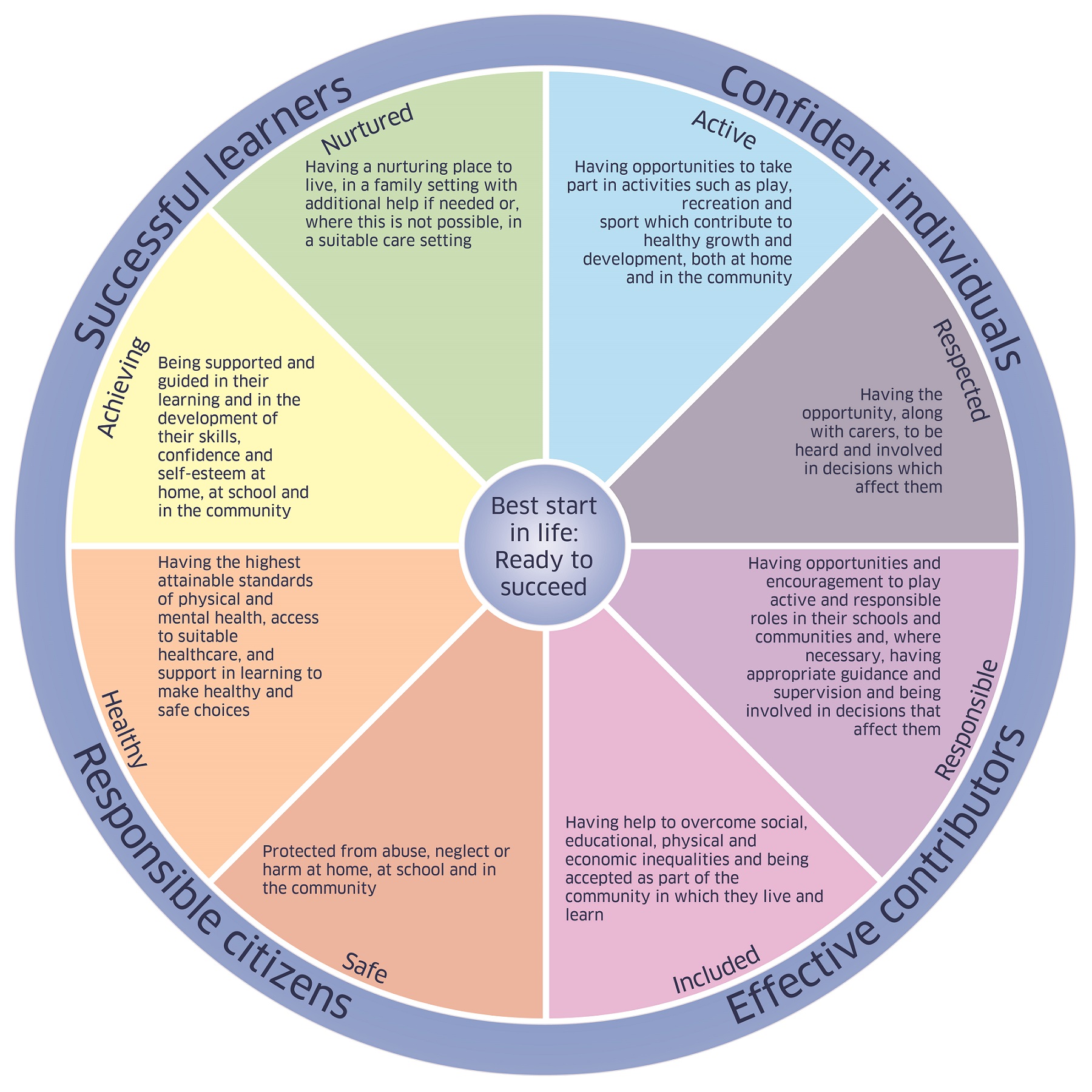To help make sure everyone – children, young people, parents, and the services that support them – has a common understanding of what wellbeing means, we describe it in terms of eight indicators.
Child protection services will continue to protect children and young people at risk of significant harm.
Eight indicators of wellbeing
-
Safe
Protected from abuse, neglect or harm at home, at school and in the community.
-
Healthy
Having the highest attainable standards of physical and mental health, access to suitable healthcare and support in learning to make healthy, safe choices
-
Achieving
Being supported and guided in learning and in the development of skills, confidence and self-esteem, at home, in school and in the community.
-
Nurtured
Having a nurturing place to live in a family setting, with additional help if needed, or, where possible, in a suitable care setting
-
Active
Having opportunities to take part in activities such as play, recreation and sport, which contribute to healthy growth and development, at home, in school and in the community.
-
Respected
Having the opportunity, along with carers, to be heard and involved in decisions that affect them.
-
Responsible
Having opportunities and encouragement to play active and responsible roles at home, in school and in the community, and where necessary, having appropriate guidance and supervision, and being involved in decisions that affect them.
-
Included
Having help to overcome social, educational, physical and economic inequalities, and being accepted as part of the community in which they live and learn.


